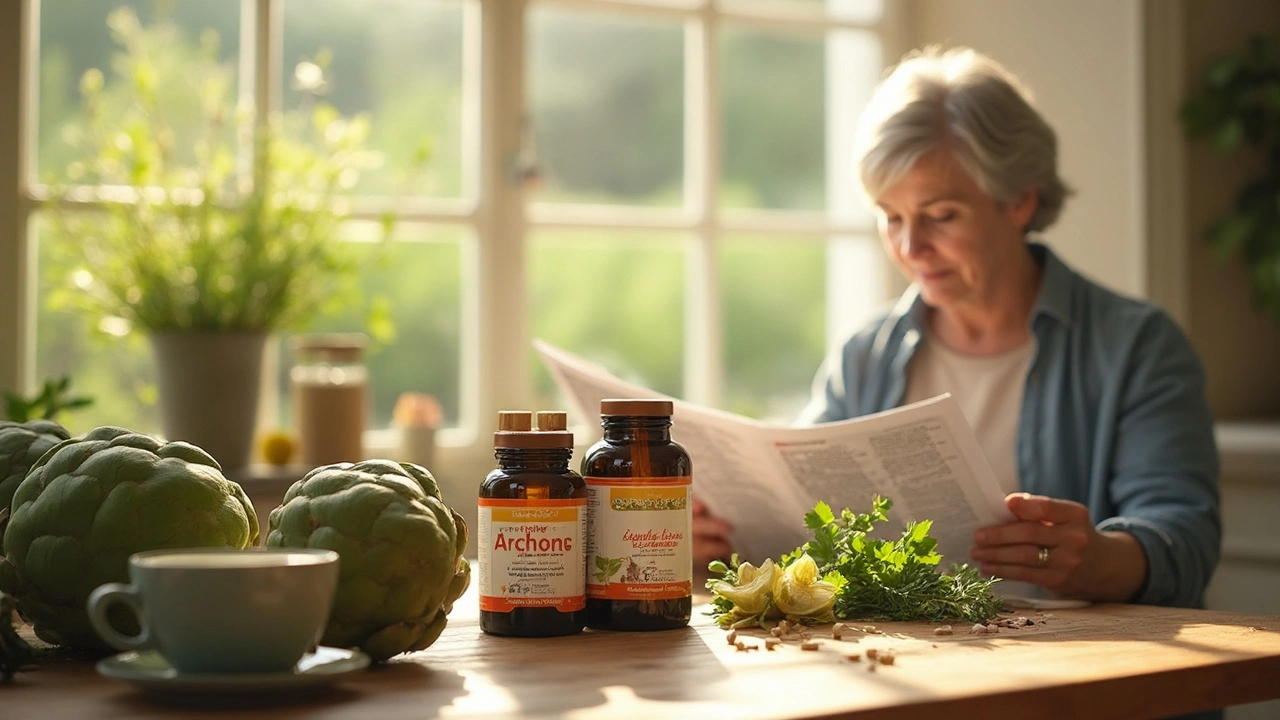Antioxidants: How They Protect You and How to Use Them
Free radicals are unstable molecules your body meets every day. Antioxidants neutralize those molecules, slowing cell damage and helping keep you healthier. That’s the simple win: fewer oxidative hits, better cell function.
So what counts as an antioxidant? Think vitamins (C and E), minerals like selenium, plant compounds (flavonoids, carotenoids), and coenzyme Q10. They work differently but aim for the same goal—stop oxidation before it harms cells.
Easy antioxidant sources you can use now
Food first. Berries, citrus, dark leafy greens, nuts, seeds, beans, and bright vegetables pack antioxidants. Green tea, turmeric, and dark chocolate (in small amounts) also contribute. Whole foods give a mix of compounds that often work better together than single high-dose pills.
Herbal supplements can help too. For example, goldthread is an herb rising in modern supplements because of its antioxidant compounds—check our article on Goldthread to learn more. Jackfruit supplements also show antioxidant potential and are covered in our Jackfruit piece.
Supplements: when they help and when to be careful
Supplements make sense if your diet is weak, you have certain health needs, or a doctor recommends them. Common choices are vitamin C, vitamin E, selenium, CoQ10, and resveratrol. Use them to fill gaps, not replace fruits and vegetables.
High doses can backfire. Large clinical trials found that high-dose beta-carotene increased lung cancer risk in smokers. High-dose vitamin E can raise bleeding risk, especially with blood thinners. Vitamin K can interfere with warfarin. If you take medicines or plan surgery, check with your clinician before starting supplements.
Practical tips: choose third-party tested products, avoid vague “proprietary blends,” and follow label dosages. Pair vitamin C with iron-rich meals to boost iron absorption, and take fat-soluble antioxidants (like vitamin E) with a meal that has some fat so your body absorbs them better.
Don’t chase big numbers. More isn’t always better. Long-term benefit comes from steady, sensible intake of antioxidant-rich foods and modest supplement use when needed.
How to pick a good supplement: look for USP, NSF, or ConsumerLab seals; check the ingredient list for actual amounts; avoid products that promise miracle cures. If a product sounds too good to be true, it probably is.
Want deeper reads? Check our posts about herbal antioxidants like "Uncover the Healing Power of Goldthread in Modern Supplements" and food-based options in "Why Jackfruit Dietary Supplements are Taking the Health World by Storm." For natural remedy ideas that overlap with antioxidant-rich plants, see our "Top 10 Effective Natural Remedies for Motion Sickness Dizziness."
Antioxidants are tools, not magic. Use real food as the foundation, add supplements only when there’s a clear need, watch for drug interactions, and talk with your healthcare provider if you’re unsure. Small, consistent choices beat occasional extremes every time.
Artichoke Supplements: Transform Your Health with Science-Backed Benefits
Artichoke supplements pack hidden health powers—way beyond the dinner table. They can boost liver function, lower cholesterol, and improve digestion. This article covers the surprising science behind artichoke extracts, what to look for in a supplement, and practical tips to get the most out of them. We’ll look at what works, what’s hype, and who should skip them. Real advice, no fluff.
View more
